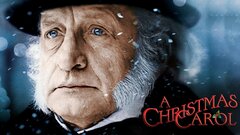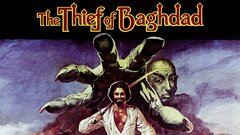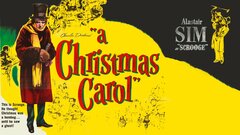British director Clive Donner began his moviemaking career at the tender age of 16 in the cutting rooms of Denham Film Studios. He worked as an assistant editor on three pictures prior to his service in the Royal Navy, after which he returned to Denham to learn a thing or two about cutting film from director David Lean ("The Passionate Friends" 1948 and "Madeleine" 1949), himself a former editor.
He moved to Pinewood Studios, establishing himself first as a full-fledged editor on movies like Brian Desmond Hurst's "Scrooge" (1950), Ronald Neame's "The Million Pound Note" (1953) and Henry Cornelius' "I Am a Camera" (1955) before cutting his teeth as a director on low-budgeters (i.e., his debut "The Secret Place" 1956, "Heart of a Child" 1958 and "Marriage of Convenience" 1960). Unprepared to go on churning out such fare, Donner turned to TV, directing episodes of popular series, documentaries and commercials.
Donner broke out from the "quota quickies" with "Some People" (1962), a surprisingly successful pop musical with songs by Ron Grainer, designed to bring the Duke of Edinburgh Award to the attention of working-class teens. Unable to find conventional backing for his next project, a screen version of his friend Harold Pinter's "The Caretaker" (1964), he faithfully captured the play on a self-advertised, experimental low budget which prevented him from opening out the play (the commonest criticism).
Donner's next excursion was to social satire with "Nothing But the Best (1964), considered by many his finest film. Working from an excellent script by Frederic Raphael, he crafted (with the help of his director of photography Nicolas Roeg) an elegant commentary on British hypocrisy, telling the tale of a working-class boy (Alan Bates), whose ascent up the ranks necessitates the murder of the man (Denholm Elliott) who helped make it possible.
Donner scored a huge commercial success with his first U.S. film "What's New Pussycat" (1965), although critics, unready for writer Woody Allen's anxious preoccupation with sex, pilloried it as "leering," "oversexed" and "salacious." He temporarily faltered when his next U.S. assignment, the film version of Murray Schisgal's absurdist play "Luv" (1967), failed to find an audience, but he rebounded nicely with "Here We Go Round the Mulberry Bush" (also 1967), an amusing, often clever adolescent romp with music by Stevie Winwood & Traffic and the Spencer Davis Group.
The pivotal point in Donner's career came next, perhaps making him a believer in the old adage: be careful what you wish for, it may come true. His excellent track record enabled him to realize his long-standing ambition to direct on a large scale, but the expensive flop which resulted, "Alfred the Great" (1969), left a stench which still lingers around his name and prevented him from getting any feature assignments for five years. Undaunted, Donner fell back on TV commercials and also began working in the theater, most notably directing Robert Patrick's "Kennedy's Children," both in London (1974) and on Broadway (1975).
Of his remaining features, only "Stealing Heaven" (1988) bore the polish and visual sensitivity of his best work, but he did what he could with 1974's one-joke Dracula spoof "Vampira" (featuring an elegant David Niven as the Count), "The Nude Bomb/The Return of Maxwell Smart" (1980), based on the sitcom "Get Smart!" and "Charlie Chan and the Curse of the Dragon Queen" (1981), starring a horribly miscast Peter Ustinov in the title role.
It remained for Donner to make his mark on TV, reuniting with writer Raphael for the choice morsel "Rogue Male" (1976), which cast Peter O'Toole as a sporting aristocrat who makes an unsuccessful attempt on Hitler's life. Many critics praised the care given its period flavor, commenting that few could have done better with vastly bigger budgets. Donner became primarily a TV director, and though his subsequent work for the medium varied in quality, he did contribute some gems in keeping with his early promise.
He helmed "She Fell Among Thieves" (1980), the initial presentation of the PBS series "Mystery!" and garnered ample praise for his 1982 version of "The Scarlet Pimpernel" (CBS). "Oliver Twist" (CBS, 1982) and "A Christmas Carol" (CBS, 1984) proved a good marriage of Donner and Dickens with George C Scott excelling in the roles of Fagin and Scrooge, but "To Catch a King" (HBO, 1984), "Arthur the King" (CBS, 1985) and "Babes in Toyland" (NBC, 1986) failed to stir the critics.
Donner directed the USA Network miniseries "Not a Penny More, Not a Penny Less" (1990), based on the best-selling book by Jeffery Archer, and helmed his last project to date for TV, the syndicated thriller "Terror Stalks the Class Reunion," in 1992.

















































